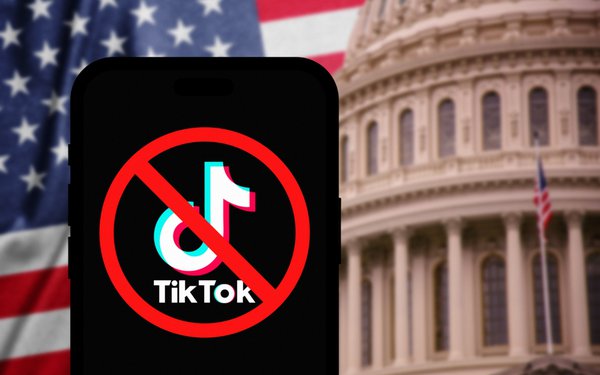
TikTok’s January deadline to find a non-Chinese buyer
looms as the company battles for its “right” to continue conducting business in the United States.
If TikTok loses, the company’s app could be removed from the Google, Apple
and other app stores, and users may be fined for using it, according to some.
The company’s fight to remain in the U.S. represents a major, high-profile argument between digital free
speech and protection of national security.
The U.S. government’s longstanding argument for a TikTok ban centers on allegedly exporting U.S. user data to ByteDance in China, and being
made available to its government.
The alternative is to sell the company to find a non-Chinese buyer within about 90 days.
If TikTok loses the appeal, next steps would mean the removal
of the app from online stores.
advertisement
advertisement
If the ban is upheld, there’s nothing more for the U.S. government to do. It would then be up to the companies and app stores whether to pull the app from
the store or be fined.
Influencers could feel like it’s not worth the risk of a hefty fine. Also affected are payment processors and banks working with TikTok, said Megan Gray,
GrayMatters Law & Policy Founder and CEO, who joined New Street Research in a virtual meeting to talk about expectations after listening to a two-hour oral argument last week before a panel of
judges.
“It’s possible TikTok could seek a three-month extension, granted by the executive branch, but only if TikTok has made meaningful steps toward the
divestiture,” Gray said.
Loopholes could be found to mitigate the impact of the law.
For example, Gray said, “you could have a side-loading out of different country because
we don’t have anything in this country akin to China’s firewall in this country. Some executive order with trade treaties or additional national security interests that trumps the current
national security interests. You also could end the law where the president waves a magic wand” and divests the company, deeming reduced ownership by ByteDance -- putting the ownership on
TikTok.
That would mean TikTok would no longer be owned by a foreign adversary.
Gray believes TikTok’s position falls within the U.S. First Amendment rights, but she did
not get the sense that this would happen.
Andrew Pincus represented TikTok’s case during the hearing, with Jeffrey Fisher
arguing for a group of U.S. TikTok creators, and Daniel Tenny defended the law on behalf of the Justice Department. TikTok’s Appeals Court panel consisted of Chief Judge Sri Srinivasan,
appointed by Obama; Judge Neomi Rao, appointed by Trump; and Judge Douglas Ginsburg, appointed by Reagan.
They were tasked with deciding whether or not to grant TikTok’s request for an
injunction blocking a law signed by President Biden called the Protecting Americans from Foreign Adversary Controlled Applications Act from going into effect. TikTok has more than 170
million U.S. users.
Tech Policy Press reported that if the Court finds in favor of the government, TikTok will have limited time to appeal to the Supreme Court, which would be its last chance
to avoid the Act’s penalties.
“It means TikTok loses,” Gray said. “It’s difficult to imagine that Ginsburg would vote any other way than a ban.”
She
also found it difficult to imagine that Judge Rao would vote any other way but to ban the company, which is not completely accurate because in July, former President Trump told Bloomberg BusinessWeek
that he is “for TikTok because you need competition. If you don’t have TikTok, you have Facebook and Instagram." Trump said he would likely find a way to keep the data in the United
States, and not allow export to China.
Gray called the law “weirdly structured,” because many do not understand how it should work.
Ginsburg seemed to find it comical that
Fisher would fight for the right of creators based on the First Amendment. “We're talking about the concern of the government with hoovering up all the information about American users,
including your speakers, right?,” he said, according to Tech Policy Press’s transcript of the discussion.
Fisher made the case that the creators opt in to sharing their data, to
which Ginsburg replied: “The user is asked, ‘Do you want to share your data?’ That doesn't mean sharing it with ByteDance, right? The problem is TikTok is going to have the
information. The question is: 'Do you want us to be able to share it with others?' Is that correct?"